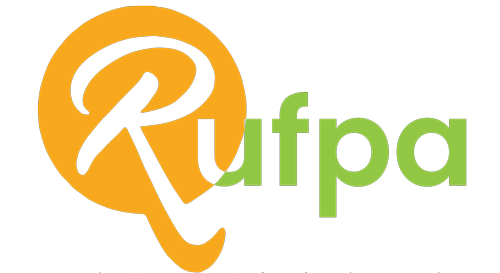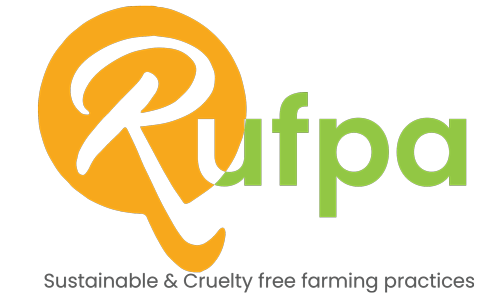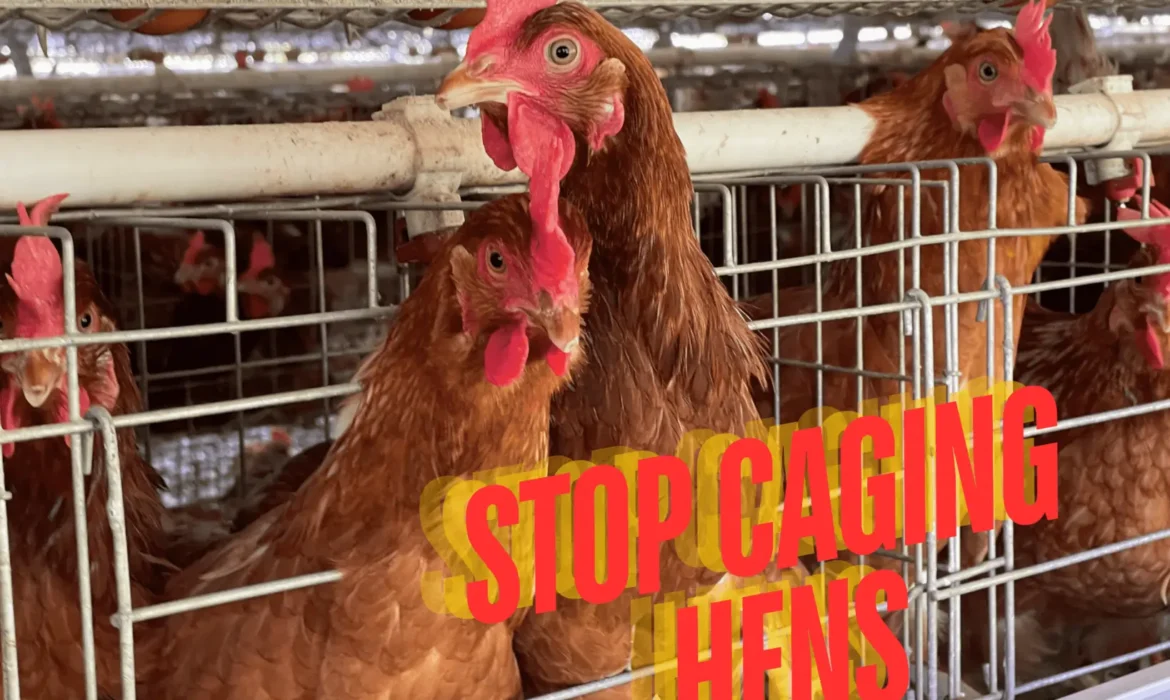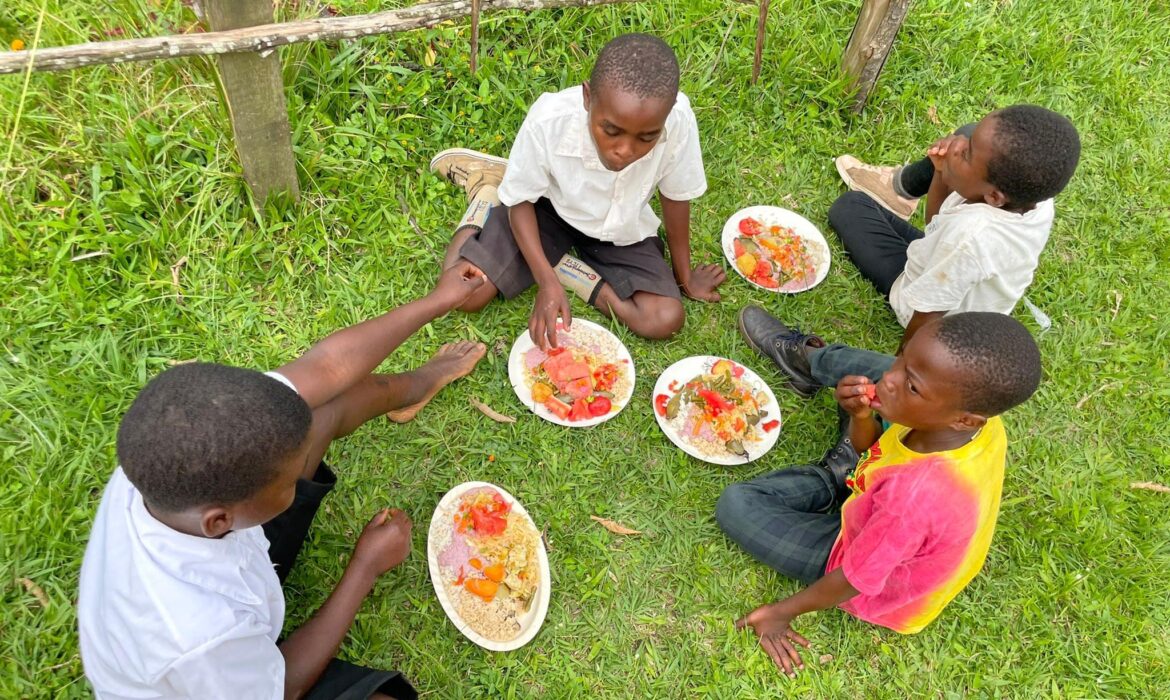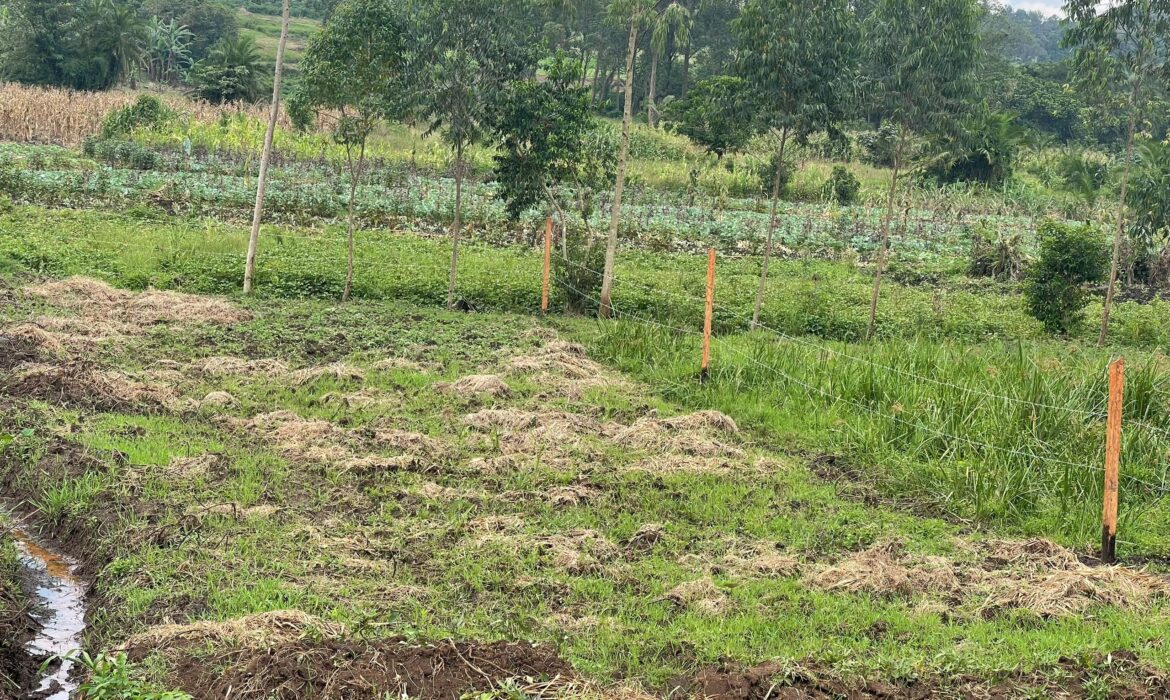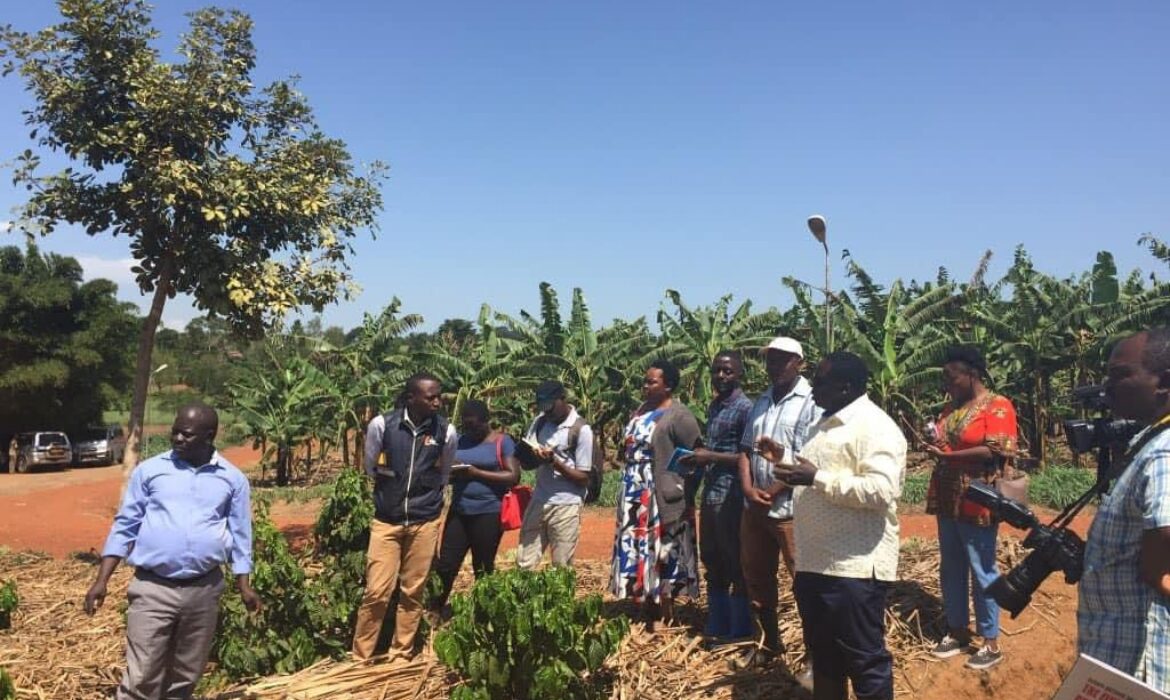Animal Rights
Animal Rights
The Rukungiri Pamoja Farmers Association is dedicated to advancing animal welfare in Uganda by promoting cage-free farming practices. Our work focuses on transitioning farmers from traditional battery cages to more humane, cage-free systems, ensuring better living conditions for hens and other livestock. We believe that animals deserve to live in environments that allow them to express natural behaviors, leading to healthier animals and higher-quality produce.
Through our Cage-Free Farming Initiative, we collaborate with local farmers to provide training, resources, and support needed to implement cage-free practices. This includes education on animal health, proper housing, and sustainable farming methods that not only benefit the animals but also improve the livelihoods of farmers
We also engage in Corporate Outreach to secure cage-free commitments from restaurants, supermarkets, and other businesses. By working with the corporate sector, we aim to create a market demand for ethically produced, cage-free products, which in turn supports our farmers and ensures better treatment of animals throughout the supply chain.
Our association is committed to raising awareness about the importance of animal welfare and advocating for policies that promote ethical farming practices. Through community outreach, media campaigns, and partnerships with like-minded organizations, we strive to make a positive impact on both animals and people in our region.
Vegan School

Vegan School Lunch
We work in selected schools by training and encouraging them to introduce affordable, accessible and healthy plant based lunch. This is part of our strategy to reduce cruelty towards farmed animals and reverse the impact of animal agriculture on the environment.
The project seeks to address health, environmental, and ethical treatment of animals among school going children in selected schools.
This project aims to improve the health and well-being of students, reduce the environmental impact of food
production, and promote compassionate towards animals in the food industry.
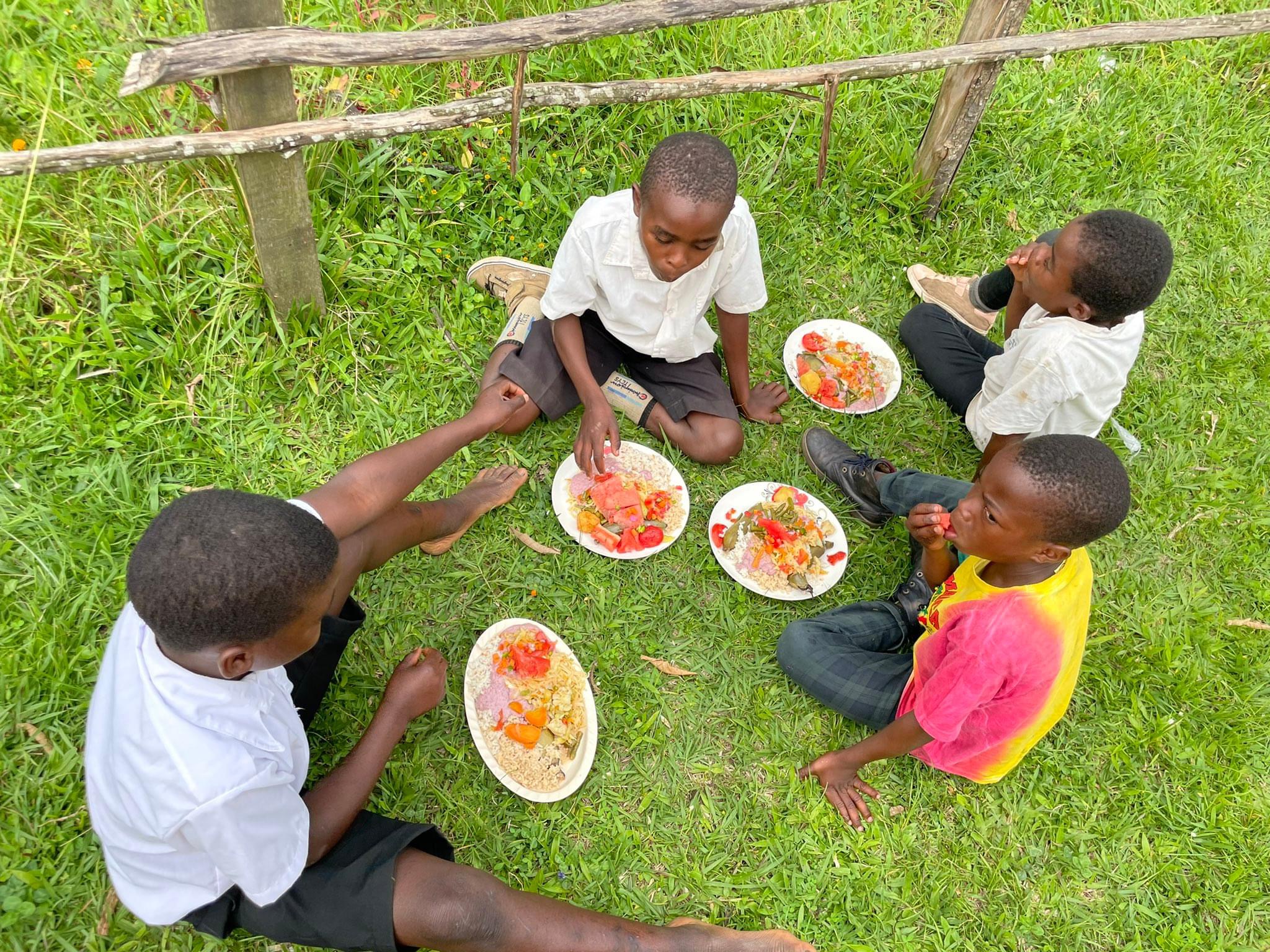
Vegan school lunch approach
We conduct a comprehensive assessment of the current school lunch program through assessing the nutritional
content, sourcing practices of the schools, student preferences and understanding of compassion towards animals.
We collaborate with nutritionists, chefs, district health and education departments to design well-balanced vegan menus that meet the dietary needs of school going children. The menu caters for essential dietary needs like protein, iron, vitamins, healthy fats and minerals.
Our project encourages school authorities to grow their own food since most schools we are working with have farm land that’s not been utilised for crop growing, this ensures sustainability and affordability.
In some instances we encourage partnerships with local farmers and suppliers to source fresh, locally-grown
fruits, vegetables, grains, and legumes. This in the long run supports the local economy which is mainly the parents of the school children and also reduces the carbon footprint of transportation.
We train and build the capacity of the school cooks and staff on vegan cooking techniques, nutrition, and food safety practices.
We conduct awareness and education campaigns aimed at educating students, parents, and the community about the benefits of a healthy vegan diet to the healthy growth of children, the environment, and animals.
This project is being implemented in 15 schools including primary level, vocational and secondary schools, we hope to expand to more 30 schools by 2025 as we monitor the program’s impact on student health and
environmental outcomes.
To ensure the project sustainability we work with the district education and health departments to integrate vegan nutrition education into the curriculum, engaging with parents, and fostering a culture of conscious eating through parent teacher associations.
WHY VEGAN SCHOOL LUNCH
Vegan school lunches offer several advantages to health, animals, and the environment.
Here are some of the key benefits
Health Benefits:
Nutrient-Rich Diet: Vegan meals are typically rich in fruits, vegetables, whole grains, legumes, nuts, and seeds, providing essential nutrients such as fiber, vitamins, minerals, and antioxidants.
b. Lower Saturated Fat and Cholesterol: Vegan diets are naturally low in saturated fat and cholesterol, which can reduce the risk of
heart disease and improve overall cardiovascular health.
c. Weight Management: Plant-based diets are often associated with lower calorie intake and can support healthy weight management, reducing the risk of obesity and related health issues.
d. Reduced Risk of Chronic Diseases: Vegan diets have been linked to a decreased risk of chronic conditions like diabetes, certain
cancers, and hypertension.
Advantages to Animal Welfare
a. Ethical Choices: Vegan school lunches promote empathy and respect for animals by eliminating the consumption of animal
products, which are often associated with factory farming and inhumane practices.
b. Reduced Demand for Animal Agriculture: A shift towards plant-based diets in schools can help reduce the demand for animal agriculture, which, in turn, may lead to a decrease in the number of animals raised for food under potentially cruel conditions.
Environmental Benefits:
a. Lower Greenhouse Gas Emissions: The livestock industry is a major contributor to greenhouse gas emissions. Vegan school
lunches can help reduce the environmental impact by decreasing the demand for meat and dairy products.
b. Reduced Land and Water Usage: Plant-based diets require fewer resources in terms of land and water compared to animal
agriculture, contributing to conservation efforts.
c. Biodiversity Preservation: Reducing the consumption of animal products can help protect natural ecosystems and biodiversity,
as animal agriculture often leads to deforestation and habitat destruction.
Education and Awareness:
a. Teaching Sustainability: Vegan school lunches can serve as a practical example of sustainable and environmentally responsible
choices, educating students about the impact of their food choices.
b. Promoting Compassion: These meals can encourage students to think about the ethical treatment of animals and promote compassionate values.
It’s important to note that the specific health and environmental benefits of vegan school lunches may vary depending on the
quality of food provided and the overall nutritional balance. Ensuring that vegan school lunches are well-planned and provide
essential nutrients is crucial for reaping these advantages
Sustainable Crop Agriculture

Sustainable Crop Agriculture
We encourage and support farmers to practice sustainable crop farming practices that are good for the environment.
Project Objectives:
Enhance Food Security: Ensure a stable and sufficient food supply for the local population by promoting sustainable crop farming practices.
Improve Livelihoods: Increase income and economic opportunities for farmers through improved agricultural techniques and crop diversification.
Promote Environmental Sustainability: Implement practices that preserve and enhance the natural environment, such as soil conservation and reduced pesticide use.
Empower Local Farmers: Provide training, resources, and support to empower local farmers with the knowledge and skills necessary for sustainable agriculture.

Key Components of the Project:
Crop Diversification: Encourage farmers to diversify their crops to reduce risk and improve nutrition. Promote the cultivation
of staple crops like maize, beans, and sweet potatoes alongside cash crops like coffee, bananas, and vegetables.
Sustainable Farming Practices: Promote organic and regenerative farming techniques that improve soil health and reduce the need for chemical inputs. This includes composting, cover cropping, and crop rotation.
Irrigation and Water Management: Implement sustainable irrigation systems, such as rainwater harvesting and efficient
water use, to ensure consistent crop production and reduce reliance on unpredictable rain patterns.
Capacity Building: Offer training programs and workshops to farmers on modern and sustainable farming methods, pest control, and post-harvest handling to minimize losses.
Access to Resources: Facilitate access to quality seeds, tools, and credit for farmers, enabling them to invest in their farms
and increase productivity.
Environmental Conservation: Promote practices such as agroforestry and the planting of cover crops to reduce soil erosion, protect natural habitats, and maintain biodiversity.
Market Linkages: Help farmers access markets, both local and beyond, by establishing cooperatives and partnerships with buyers, thereby improving income and reducing post-harvest losses.
Monitoring and Evaluation: Implement a robust monitoring and evaluation system to assess the project’s impact, adjust strategies as needed, and ensure that sustainability goals are met.
Community Involvement:
The project should involve local communities, including farmers, traditional leaders, and women’s groups, in the planning and
decision-making processes. Their participation can help ensure that the project aligns with their needs and priorities.
Partnerships:
Collaborate with local government agencies, non-governmental organizations, and international development organizations to access funding, technical expertise, and resources necessary for the successful implementation of the project.
Sustainability and Long-Term Impact:
The project should have a clear sustainability plan, including local ownership and the establishment of farmer groups and cooperatives that can continue to support sustainable agriculture practices after the project’s conclusion.
By implementing this sustainable crop agriculture project concept in Rukungiri district, it can contribute to improved food security,
increased incomes, and a healthier environment for the local population while promoting long-term agricultural resilience.
Farming
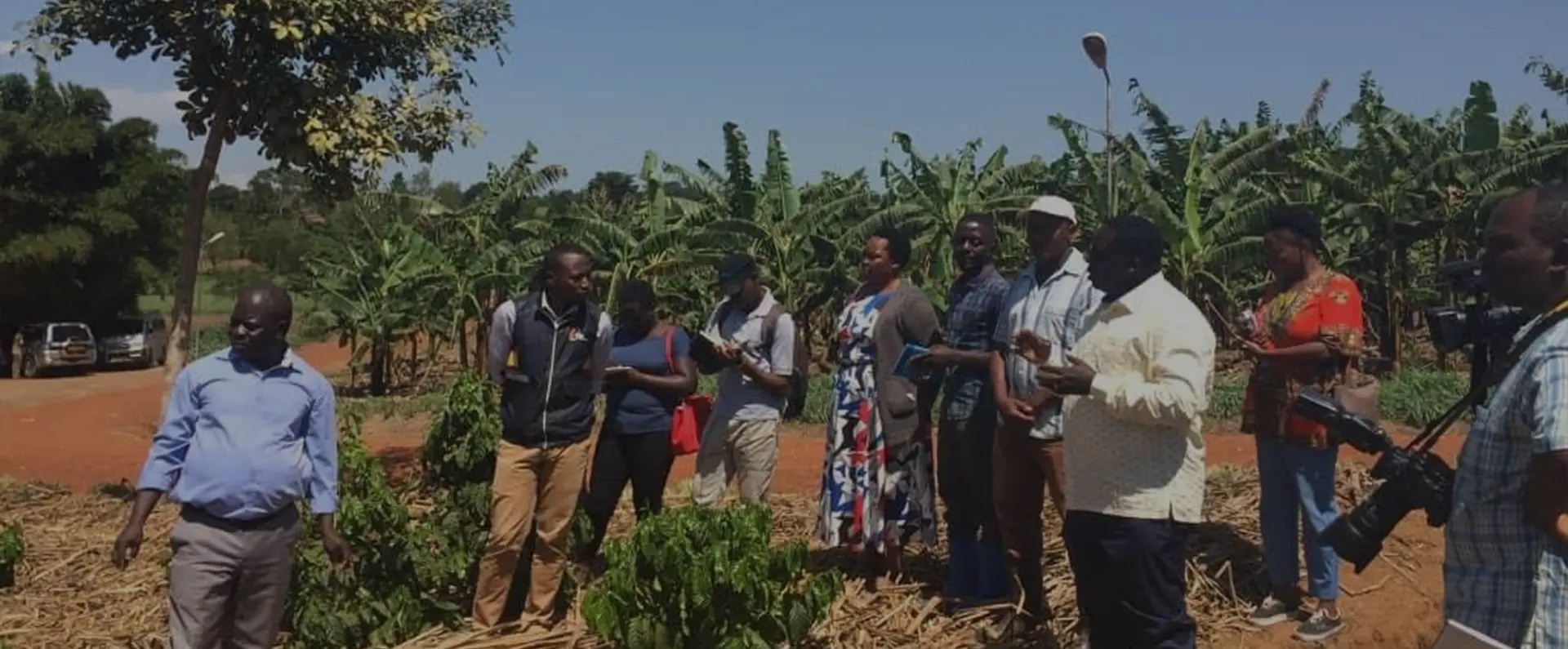
Rukungiri district in Uganda is known for its fertile soils and favorable climate, making it suitable for crop agriculture. The main crops grown in the area include:Bananas, Matooke (a type of starchy banana), Maize, Beans, Cassava, Potatoes, Sweet potatoes, Coffee, Rice, Tea etc.
These crops are mainly grown by smallholder farmers, as RUPFA we support these farmers with resources, training, skills and market access.
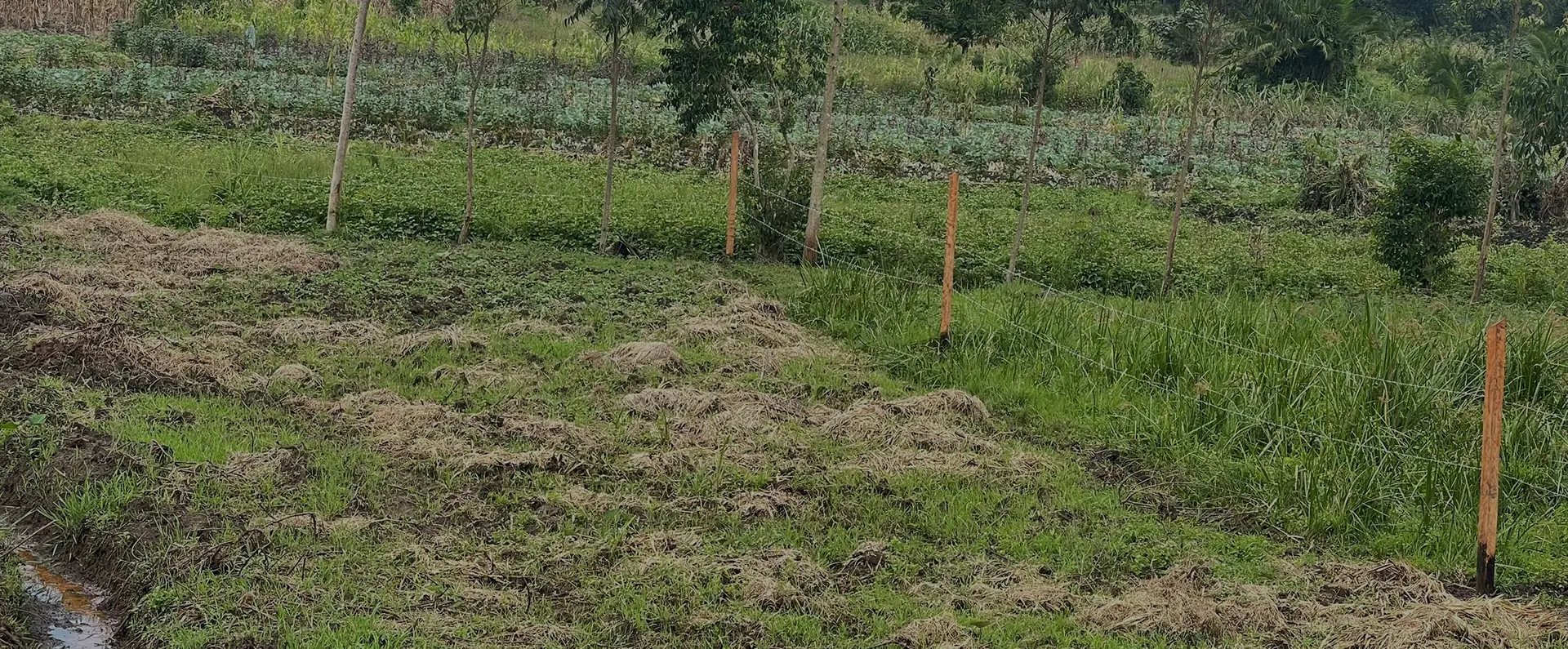
How We Work
From the designers and engineers who are creating the next generation of web and mobile experiences, to anyone putting a website together for the first time. We provide elegant solutions that set new standards for online publishing.
Digital technology has made our world more transparent and interconnected, posing new challenges and opportunities for every business. A holistic, user-centric perspective is what truly sets one apart.
How can you support?
Donors can support crop farmers in Rukungiri under the umbrella organization RUPFA (Rukungiri Pamoja Farmers Association) in several ways:
1. Training and Capacity Building: Provide resources for training on modern farming techniques and sustainable crop agriculture practices
2. Seed and Input Support: Donate high-quality seeds, fertilizers, and other essential inputs to enhance crop yields and quality.
3. Irrigation and Water Harvesting: Support the installation of irrigation systems and water harvesting infrastructure to improve farming efficiency.
4. Market Access: Help establish market linkages and facilitate access to fair markets for farmers to sell their produce.
5. Equipment and Technology: Donate farm equipment, such as tractors, plows, and planters, and support the adoption of technology like precision farming and mobile apps.
6. Financial Support: Provide loans, grants, or other financial assistance to help farmers expand their operations, improve productivity, and increase incomes.
7. Extension Services: Support the hiring of agricultural extension officers to provide technical guidance and support to farmers.
8. Value Addition and Processing: Encourage value addition and processing of farm produce to increase farmers’ earnings.
9. Soil Testing and Fertilizer Support: Provide resources for soil testing and fertilizer support to improve soil fertility and crop yields.
10. Climate Change Mitigation: Support initiatives that help farmers adapt to climate change, such as drought-tolerant crops and conservation agriculture.
By supporting RUPFA and its member farmers, donors can contribute to improved livelihoods, food security, and sustainable agriculture practices in Rukungiri district.
